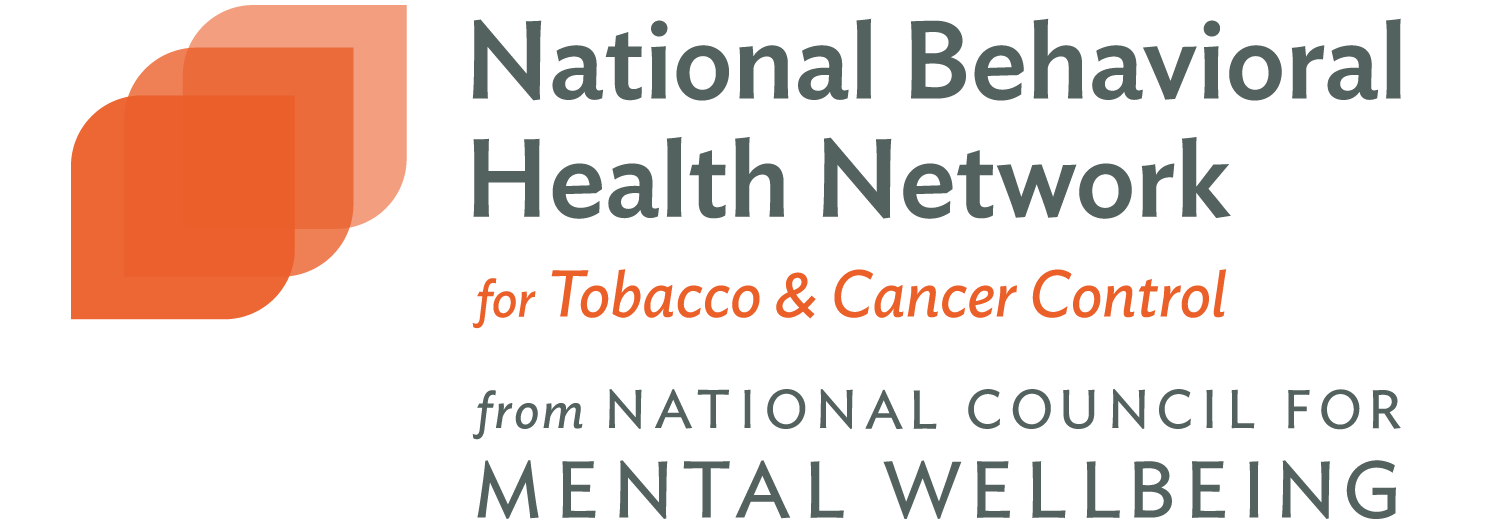In 2016, the National Behavioral Health Network for Tobacco & Cancer Control (NBHN) hosted two cancer educational sessions at a Washington, DC behavioral health provider, MBI Health Services. The sessions were so well attended that agency staff requested additional sessions in 2017 focusing on multiple CDC cancer campaigns, including gynecological cancer and colorectal cancer. MBI Health Service clients attended the sessions, actively participated, and expressed intent to change health behaviors. Pre- and post-surveys demonstrated increased knowledge around cancer risks, signs and symptoms.
CHALLENGE
Research indicates that individuals with a mental illness have a cancer incidence rate 2.6 times greater than people without a mental illness, owing to late-stage diagnosis, and inadequate treatment and screenings. Often the lack of integration between behavioral health and medical/health care systems can exacerbate this. Other contributing factors include stigma around mental illness and substance use, provider bias, lower socioeconomic status and education, and higher rates of homelessness. Additionally, individuals with a mental illness have a higher rate of cancer-related mortality. These startling facts illustrate a need to provide individuals with behavioral health issues with more information around preventing, screening and treating cancer.
SOLUTION

To share information about preventing and treating cancer, NBHN held cancer educational sessions at MBI Health Services in 2016 & 2017. MBI’s behavioral health programs provide psychiatric counseling, case management, and more for 1,800 clients annually. Following successful educational sessions focused on CDC’s Inside Knowledge: Get the Facts about Gynecologic Cancer campaign in 2016, MBI requested additional sessions in 2017. These sessions included another Inside Knowledge campaign, as well as a session on Screen for Life: Colorectal Cancer campaign. All sessions used didactic presentation, educational material and interactive activities.
RESULTS
The educational sessions generated significant dialogue among the participants and an enthusiastic Q&A session. NBHN administered pre- and post-surveys to assess knowledge of signs, symptoms and risk factors. One of the strongest outcomes was related to tobacco and cancer: following the gynecologic cancer educational session, 91% of attendees responded correctly that smoking increases risk of cervical cancer (compared to 62% in the pre-test). The colorectal cancer educational session showed similar positive outcomes, with 98% of attendees responding correctly that eating healthy, exercising, and not smoking can help lower risk of colorectal cancer (compared to 86% in the pre-test).

Following the sessions, participants expressed intentions to schedule appointments with providers at MBI around cancer screenings, or with other healthcare providers, limit their exposure to certain risk factors (e.g., by reducing smoking, eating a healthier diet), and speak with their family members about cancer and prevention. Following the first educational session in 2016, participants and staff expressed great interest in hosting additional sessions, a true mark of success. Participants stated they appreciated the information received, and had further questions around cancer prevention. Staff reported seeing an impact in screening numbers.
Your Involvement is Key!
The National Behavioral Health Network conducts educational sessions with clients and staff of community behavioral health organizations to raise awareness of CDC cancer campaign resources. Learn more by visiting the website at BHthechange.org. Is your organization interested in hosting a cancer educational session? Email us at bhthechange@thenationalcouncil.org or check-out the CDC’s Cancer Education Campaigns for free resources and materials.

